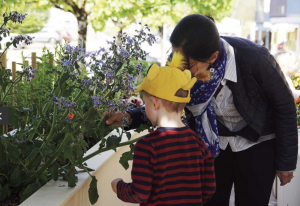Love is one of the most powerful human emotions, influencing everything from romantic relationships to parental care. Previous studies have shown that both romantic and maternal love activate the brain’s attachment and reward networks, key areas involved in bonding and caregiving in humans and other mammals. But does the brain respond the same way when we love our children as it does when we love nature or pets?

While romantic and parental love are central to our understanding of love, the concept itself is much broader. We can feel love for our partners and children, but also for friends, strangers, pets, and even nature. For example, pet owners often experience a deep bond with their animals, sometimes comparable to the love between a parent and child. Similarly, many people express a profound love for nature, which can evoke strong emotional responses.
In this study, researchers wanted to see how the brain reacts to different types of love. They worked with 55 participants, aged 28 to 53, who had at least one child and were in a romantic relationship. Twenty-seven of the participants also owned a pet. During the study, participants listened to short, pre-recorded stories designed to evoke feelings of love for six different targets: romantic partners, children, friends, strangers, pets, and nature. While they listened, researchers used fMRI to measure brain activity.
The findings revealed that, while there is some overlap in how the brain processes these feelings, parental love triggers particularly strong activation in the brain’s reward system, more so than other types of love. This suggests that the bond between parent and child may be uniquely powerful in its neural impact. In contrast, love for strangers (as in compassionate love) and nature showed weaker activation in social brain areas, indicating that different neural pathways are at work.
Interestingly, the study also found that pet owners had a stronger neural response in social brain areas when thinking about their pets, similar to the response seen with human relationships. This highlights the unique bond that can form between humans and animals.
However, it’s important to note that the study has some limitations. With a sample size of just 55 participants, the results may not be universally applicable. The participants were also a specific group—middle-aged, with children and in romantic relationships—which may influence how their brains respond to different forms of love. Additionally, the study’s findings on love for strangers, pets, and nature could be shaped by cultural and individual differences, meaning the results might not hold true across different societies or personal experiences. So, there’s a bit more research to be done in this area.
Yet, what we can see from these early results is that our brains respond to various forms of love in similar ways; however, the intensity and specific areas of activation differ, with parental love standing out as particularly powerful.
We might have suspected this all along, but it’s fascinating to see this backed up by research! 😊

PS: by the way, these results are also helpful if you have a pet, and family or friends have been making fun of you for talking to it like to a human being…. 😊. Your pet understands! It’s family. It’s love.

PPS: obviously, at Little Green House, we LOVE NATURE, too.
Source: This summary is based on an article in the journal « Cerebral Cortex« , where you can find more details on the study. It’s been published on the Oxford Academic website.
